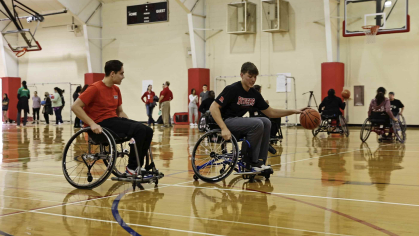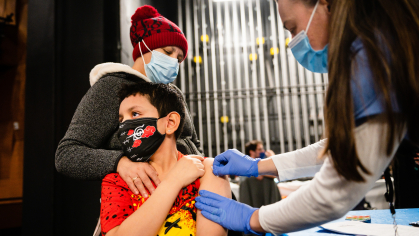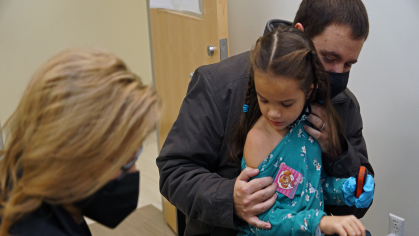Cooperation with Contact Tracers Critical to Fighting COVID-19
Rutgers is urging students to cooperate with contact tracers if they get a call advising them that they may have been exposed to COVID-19.
“No one can or will be punished by the university for assisting the important work of the contact tracers,” said Salvador Mena, Rutgers University-New Brunswick’s vice chancellor for Student Affairs. “We urge cooperation with contact tracers because the only consequence is positive – the increased safety of our campus and surrounding communities, and of your own loved ones.”
To any students who may be reluctant to speak with contact tracers fearing that they will get themselves or their friends in trouble for attending parties or inside gatherings, the university noted that New Jersey contact tracers, about 1,000 trained by Rutgers School of Public Health and employed by local health departments, only want to reach out to those infected and provide resources for isolating at home and to others they may have had contact with so they can be tested.
At each step personal information is kept confidential. Information gathered by contact tracers is shared within a secured portal visible only to health officials and used only for the purpose of slowing the spread of disease, according to Colleen McKay Wharton, program manager for the Center for Public Health Workforce Development at the Rutgers School of Public Health. She is also a co-developer of the school’s contact tracer training curriculum.
McKay Wharton said contact tracing is routinely used to prevent the spread of diseases such as meningitis, tuberculosis and sexually transmitted diseases. It has helped bring the AIDS pandemic under control in the United States and contributed to reduced COVID-19 infection rates in other countries.
“In the absence of a vaccine or effective treatment, contact tracing is the primary tool in the tool belt for public health. Identifying people who may have been exposed and getting them to quarantine is the most effective way to contain the spread of disease,” McKay Wharton said.
Rutgers’ training for contact tracers includes preparing them to speak with people who are reluctant to identify themselves or others, McKay Wharton said. “It’s important for the contact tracer to acknowledge their concerns, while helping them understand why this process is so important. If you’re a young person, then perhaps your health will be OK, but when you visit home for the holidays, you’ll be with relatives who have a greater risk.”
Melodee Lasky, Rutgers’ associate vice president for Student Health Services, said, “We urge all students to assist us in safeguarding your health by following our community safety guidelines. Please wear a mask, maintain appropriate distance, wash your hands, get tested if you have been exposed to COVID-19 or are experiencing related symptoms, use the My Campus Pass app to screen for symptoms, stay home if you aren’t feeling well and respond promptly and truthfully to contact tracers when they call.”
Rutgers’ Testing Protocol Action Group (TPAG) makes recommendations regarding groups of students or employees who should be tested through the university’s COVID-19 testing plan. Lasky urged any students who receive such a recommendation, to act on it quickly.
Up-to-date information from Rutgers’ strategic COVID-19 testing program can be found here: https://coronavirus.rutgers.edu/health-and-safety/testing-program-dashboard/


